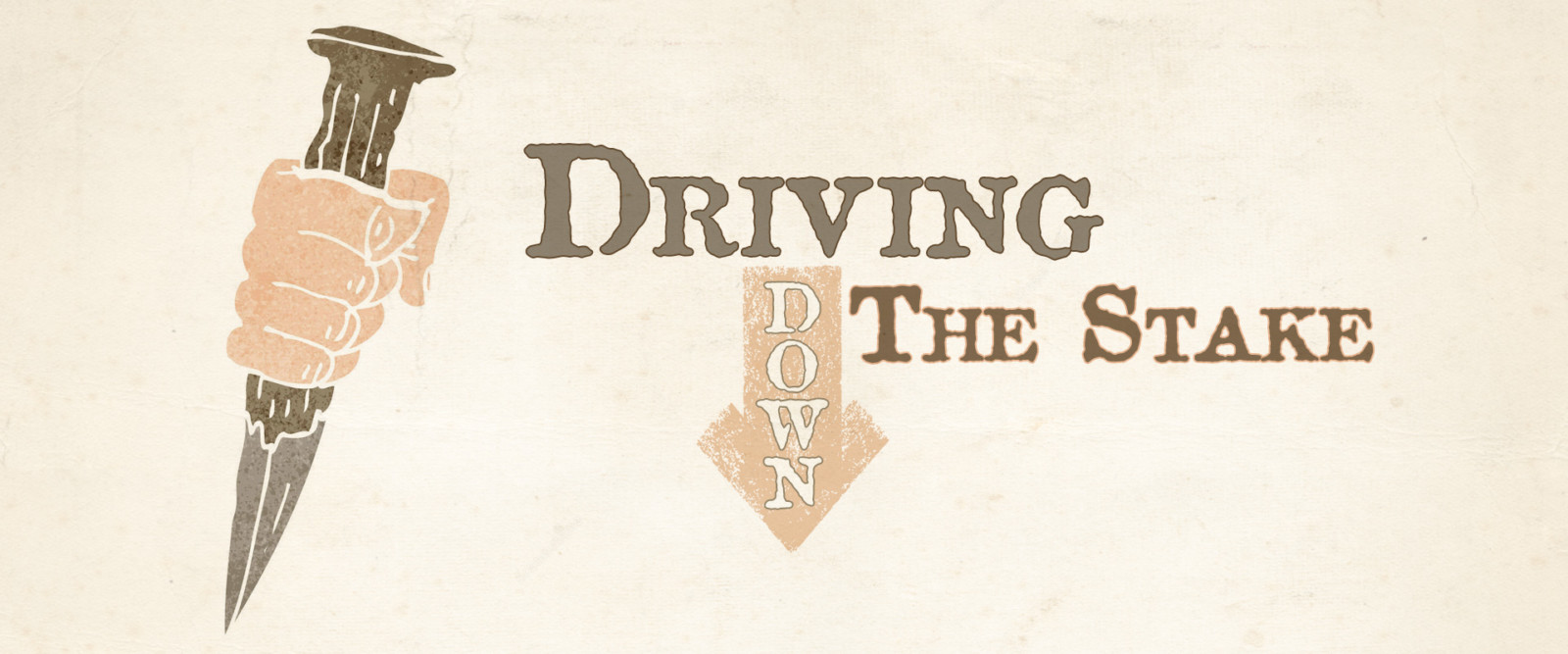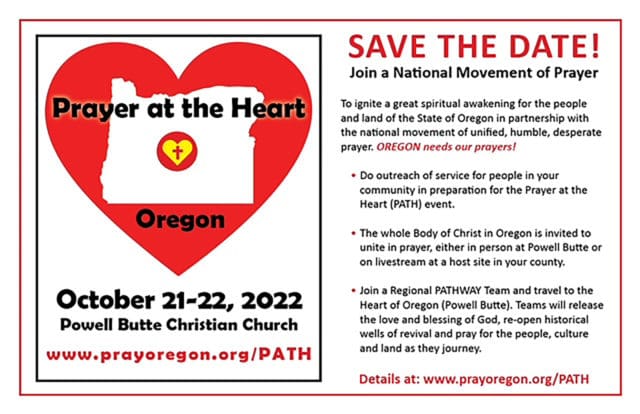Pastor Jim Moore, Salem, OR “You shall also be a crown of glory in the hand of the LORD, and a royal diadem in the hand of your God. You shall no longer be termed Forsaken, nor shall your land any more be termed Desolate; But you shall be called Hephzibah, and your land Beulah; for the LORD delights in you, and your land shall be married. For as a young man marries a virgin, so shall your sons marry you; and as the Bridegroom rejoices over the Bride, so shall your God rejoice over you.” (Isaiah 62:3-5)
There is a movement in the land called “Staking.” It revolves around the idea of driving a literal wooden (or metal) stake in the ground for the purpose of claiming the land for the Lord, which is a very good idea. The land does belong to the Lord as He created it, as He did all things, for His glory:
“For by Him all things were created that are in heaven and that are on earth, visible and invisible, whether thrones or dominions or principalities or powers. All things were created through Him and for Him.” (Colossians 1:16)
However, there is another component of staking the land that should have our attention. The idea of the stake becoming a symbol of our own commitment and connection to the land. The same way the stake is placed as a permanent marker and in a sense becomes “one with the land” so we are promised by the Lord in this famous passage concerning intercession, that He will send people to “marry” or become one with the land. Normally, very little gets done in the kingdom until someone commits themselves to the land in which the Lord places them.
The young 20-something Moravian missionaries would pack their belongings in a coffin before boarding a ship that would take them to the new land of their calling. They didn’t plan on coming back. Their intent was to pack their things in a coffin as a symbolic one-way ticket to a place they would commit themselves to forever. This is not to suggest that every missionary will be called to live and die in the land of their mission. However, there is a “transient nature” in the world today that would rather travel and uproot again and again than submit to the discipline it takes to stay in one place for a lifetime, or at least for many years. But things are changing. God is presently raising up a people who will see the past and future plans of God for a region and commit to it for the long haul.
As we travel around the State of Oregon, planting beautiful stakes full of scriptures that declare the rightful promises of God over His land, let us remember that He has said He will put it in the heart of men and women to join themselves to the desire and destiny of the region in which they have been planted. They will carry God’s heart to see His original will accomplished and His plans from the very beginning fulfilled. As a popular song today says:
“Greater things are yet to come, Greater things are still to be done in this city”
Let us become in the hands of the Lord, just like the stakes that we are planting in the ground. Let us allow Him to drive us like a “stake” in the land of our destiny and “Marry the Land” for the good of His kingdom, and embrace a commitment to His destiny for the land we find ourselves in.




